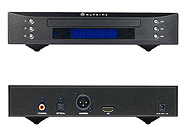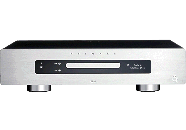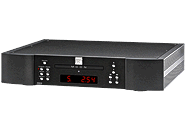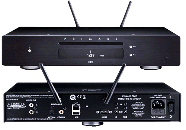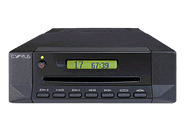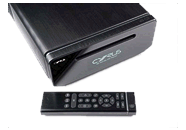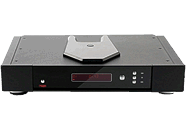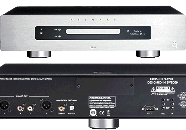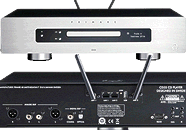CD Players@kemela
New music, especially classical and jazz, continues to be released on CDs. Many of these are well recorded with good sound quality that can be appreciated by the latest generation of CD players (including internal DAC providing Analog output) and CD transports (optical drive mechanism only providing digital output requiring external DAC).
The current generations contain far better servo mechanisms than earlier players that give a better read off the disc, while DACs in CD players are either dedicated purist designs specifically tuned for 16bit/44.4kHz CDs only, or have multi rate DACs with digital inputs so they can be used for other digital sources.
The increasingly delivery of music via streaming services and digital file downloads (and software in general) has resulted in the departure of many optical drive manufacturers and prices have crept up. However sound quality is better than ever so those with rare CDs or very large collections can continue to enjoy their CD libraries.
Repair or Replace?
CD Players typically last 7-10 years before the laser has dimmed with age to the point where error correction is no longer able to compensate for missing data and the player begins to mistrack or displays the dreaded 'no disc'. Installing a new mechanism is not always a straight forward option because it has to be compatible with the older controlling electronics. Sound quality will be limited by the older DAC. Purchasing a reliable new player with better sound quality and a full warranty is usually the best (or only) option.
Considerations when purchasing a new CD Player or Transport
Half-width - useful where space is at a premium - and full width products are available in both top loading and front loading slot or tray physical formats.
Some products have large displays making track information easier to see from across a room for those with impaired sight. Some players may have upgradeable DACs and others can be
upgraded with an external low noise regulated power supply.
Some manufacturers are including a streaming module keeping all the digital in one box while the amplication can remain completely analog.
This is a good option for those who have not yet explored subscription based streaming services which offer a wide selection of music.
If you require a multi-rate DAC, a transport with external DAC is definitely worth considering (you may also already have an inegrated amp with a built in DAC or a stand alone DAC).
Alternatives
Many remain happy to continue to use CDs particularly if you already have a large collection. Some CDs may never make it over to a streaming services library. Ripping CDs (including those not available to purchase as digital file downloads) to a Music Library (juke box) is a more convenient way to access your music, reduces wear and tear on your CDs, and opens the door to downloading and locally streaming higher resolution digital files. As CD player prices have crept up, high resolution digital file music libaries become more competitive.
Getting the most out of a CD player or Transport
Power conditioning, isolation platforms and better digital coax, optical or analog cables will all improve sound quality.
